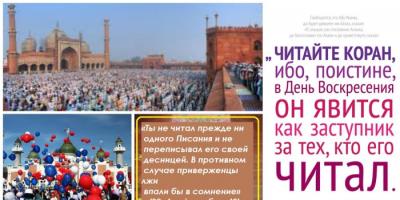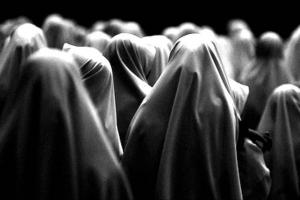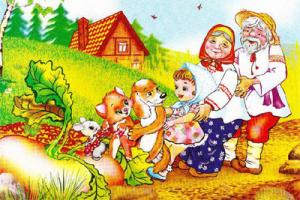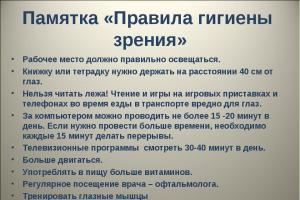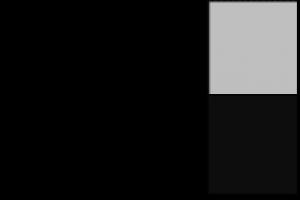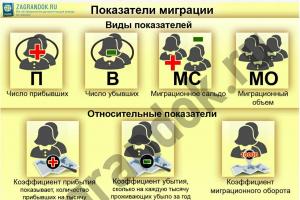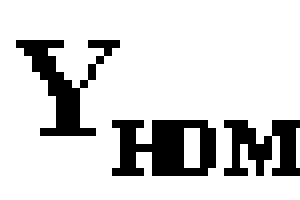The Qur'an is the Scripture revealed to all mankind from the Almighty Creator. The Koran is a Revelation from the One and Only true God, expressed in the words of the Creator Himself of the entire universe and all people, your and my God. The Qur'an is the final Scripture from the Lord of the worlds to all mankind until the Day of Judgment.
Any religious teaching is based on authoritative books that tell followers about the rules of life. Interestingly, it is impossible to establish the authorship of most of these books. Moreover, there is often no way to find out exactly when a book was written and by whom it was translated.
The holy books on which Islam is based are based on absolutely reliable sources; they are taken as the basis of faith. There are only two of them - the Koran and the Suna. If any hadith contradicts the Koran, then it is discarded; only those hadiths in which there is no doubt are taken into the aqida (belief of Muslims). In this article we will talk about the Quran in detail.
Quran: the main source of Islam
The Quran is the Word of Allah. The Lord, through the Angel Gabriel, peace be upon him, conveyed His Word to the Prophet Muhammad (may the peace and blessings of Allah be upon him). Subsequently, the Prophet (pbuh) read the Scripture of the Lord to the people, and they were able to accurately reproduce it in written form. The Koran is the main Book of a growing religion, a text that helps many generations of people who have come to know God live. The Koran instructed people, healed their souls, and protected them from vices and temptations. Before the Prophet Muhammad (peace be upon him), there were other prophets of the Lord, and before the Koran, the Lord transmitted the Divine Scripture to people. This is how people received the Torah, the Gospel, and the Psalter. The prophets were Jesus, Musa, Daoud (peace and blessings of Allah be upon them all)
All these Scriptures are revelations of the Lord, but over the millennia much has been lost, and many texts have also been added to them that were not present in the original Message.
The miracle of the Koran in the uniqueness of man
The Koran differs from other basic texts of religions in the absence of any distortions. Allah made a promise to people that He will protect the Quran from corrections by people. Thus, the Lord of the worlds abolished the need for the Scriptures previously transmitted to people and designated the Qur'an as the main one among them. This is what the Lord said:
“We have sent down to you the Scripture with the truth in confirmation of the previous Scriptures, and so that it may rise above them” (5, Al-Maida: 48).
The Almighty Lord says in the Koran that the Scripture was given to explain to man everything that happens to him. “We have sent down to you the Scripture to clarify all things” (16, An-nahl:89).
In addition, the Lord gives humanity an indication of the path that will lead them to happiness and prosperity: this is indicated directly in the Koran.

Previous prophets of Allah performed miracles, but they ended after the death of the prophet. The Koran, like the miracle of the Prophet Muhammad (may God bless him and greet him), continues to be an inimitable text that does not have the slightest distortion and is proof that Islam is the religion of truth.
Surprisingly, the texts of the Koran are built from the same letters as other written monuments, but over the centuries no one has been able to compose from these letters something equal to the Holy Scriptures in its power and meaning. Leading Arab sages, possessing incredible abilities in literature and oratory, declared their inability to write even one chapter similar to the text from the Koran.
"Or they say, 'He made it up.' Say: “Compose at least one surah similar to these, and call upon whomever you can besides Allah, if you speak the truth” (10. Yunus: 38).
There are many confirmations of the fact that the Qur'an comes directly from the Almighty Creator. For example, the sacred Book contains information that simply could not be known to humanity at that stage of its development. Thus, the Koran mentions nationalities whose existence at that time had not yet been discovered by geographers. The Qur'an contains many accurate predictions of events that occurred centuries after the Book was revealed to people. Many verses from the Koran were confirmed only in the 21st century, after sufficient development of science and technology.

Another most important evidence of the reliability of the Holy Book. Before the Qur'an was revealed to the Prophet Muhammad (peace and blessings of the One God), the Prophet never spoke in such a style, never spoke to those around him in words even remotely reminiscent of the Qur'an. One of the verses clearly states this:
“Say (O Muhammad): “If Allah had willed, I would not have read it to you, and He would not have taught it to you. Before, I lived my whole life with you. Don’t you understand?” (10. Yunus: 16).
It must be taken into account that Muhammad (may God bless him and welcome him) was illiterate, never communicated with sages, and did not attend any educational institutions. In other words, before divine revelation, Muhammad was an ordinary person. This is what Allah said to the Prophet:
“You have never read any Scripture before or copied it with your right hand. Otherwise, the adherents of lies would fall into doubt" (29, Al-'ankabut: 48).
If Muhammad, peace and blessings of the Almighty be upon him, did not speak from the Lord himself, why would Jewish and Christian shepherds visit him with questions about faith and requests to explain to them incomprehensible places in their Scriptures. These people already knew from their divine Scriptures that an illiterate Messenger would come through whom the Scriptures would be transmitted.
Let us remember the words of Allah:
- “Those who follow the messenger, the illiterate (cannot read or write) prophet, the record of which they will find in the Taurat (Torah) and the Injil (Gospel). He will command them to do what is good and forbid them to do what is reprehensible, He will declare good things permissible and bad things forbidden, and He will free them from burdens and fetters” (7, Al-a’raf: 157).
Among the contemporaries of the Prophet Muhammad, peace be upon him, there were people who asked him difficult questions, and the Prophet (sallallahu alayhi wassallam) answered them with the words of the Lord of the Worlds.
- “The People of the Book ask you to send down the Book from heaven to them” (4, Al-Nisa: 153), and also: “They will ask you about your soul” (17, Al-Isra: 85), and also: “They They ask you about Dhul-Qarnain" (18, Al-Kahf: 83).
The Messenger, peace be upon him, always used verses of the Koran in his answers and was always based on evidence. And knowledge of the words of the Lord helped him answer questions from representatives of other religions.
The Muslim Holy Book continues to inspire admiration. Recently, a well-known theologian, Abraham Phillips, published an essay that he devoted to finding inconsistencies in the Koran. According to Phillips, his goal was to expose the Koran. In the end, he admitted that there were no inconsistencies in the Book, that it was completely historical. Phillips stated that the Qur'an is unique and inimitable. Finally, heeding the call of the Book, he returned to Islam.
Scientist Jeffrey Lang from the USA once received an unexpected gift - an American edition of the Koran. Delving into Scripture, Lang suddenly felt that the word of God was addressed directly to him, that at the moment of reading he was speaking with the Almighty. The professor found in the Koran the answers to all the difficult questions that troubled him. The impression was incredibly strong; Lang stated that he, a world-famous scientist trained in modern institutions, does not know even a hundredth part of what is contained in the Koran.
Let us remember the words of the Lord of the Worlds:
“Will He who created this not know this, and yet He is the Perceptive, the Knowledgeable?” (67, Al-mulk: 14).
Reading the Koran shocked Lang and soon he announced his acceptance of Islam.
The Quran is a guide for life sent down from the One who created this life
The Great Book tells a person everything he needs to know. The Koran contains all the basic principles of human existence and talks about legal, religious, economic and moral standards of life.
There is also a clear indication in the Qur'an that God is One with different names. These names are listed in the Quran, as are the actions of the Lord.
The Koran talks about the truth of the teaching, contains a call to follow the Prophets, peace be upon them all. The book threatens sinners with the Day of Judgment for their unrighteous lives - the punishment of the Lord awaits them. The need to lead a righteous life is confirmed by specific examples. The Koran mentions troubles that befell entire nations, descriptions of the punishments awaiting sinners after death.

The Koran is also a collection of predictions and instructions that delight modern scientists. This is a system for life sent down from the One who created this life, this is a concept that no one could refute. Today, natural scientists confirm the things stated in the Quran with concrete discoveries in science.
Let us remember the words of the Almighty:
- “He is the One who mixed two seas: one is pleasant, fresh, and the other is salty, bitter. He placed between them a barrier and an insurmountable obstacle” (25, Al-furqan: 53);
- “Or they are like darkness in the depths of the sea. It is covered by a wave, above which there is another wave, above which there is a cloud. One darkness on top of another! If he stretches out his hand, he won't see it. To whom Allah has not given light, there will be no light for him” (24, An-nur: 40).
The large number of colorful marine descriptions in the Koran is another confirmation of the divine nature of the Book. After all, the Prophet Muhammad had not been on sea vessels and did not have the opportunity to swim at great depths - there were no technical means for this then. Where did he learn everything about the sea and its nature? Only the Lord could tell this to the Prophet, peace be upon him.
One cannot help but recall the words of the Almighty:
“Verily, We created man from the essence of clay. Then We placed it as a drop in a safe place. Then We created a blood clot from a drop, then We created a chewed piece from a blood clot, then we created bones from this piece, and then we covered the bones with meat. Then We raised him in another creation. Blessed be Allah, the Best of creators!” (23, Al-Mu'minun:12-14).
The described medical process - details of the step-by-step development of a baby in the mother's belly - is known only to modern scientists.
Or another amazing passage in the Koran:
“He has the keys to the hidden, and only He knows about them. He knows what is on land and in sea. Even a leaf falls only with His knowledge. There is not a grain in the darkness of the earth, nor anything fresh or dry, which is not in the clear Scripture" (6, Al-an'am: 59).
Such large-scale, detailed thinking is simply not accessible to humans! People do not have the necessary knowledge to monitor all the processes occurring in nature. When scientists discover a new species of plant or animal, it is a major scientific discovery that everyone admires. But the world still remains unknown, and only the Koran can explain these processes.
Professor from France M. Bucaille published a book in which he examined the Bible, Torah and Koran, taking into account modern scientific achievements and discoveries in the field of geography, medicine, and astronomy. It turned out that there is not a single contradiction to science in the Koran, but other Scriptures have serious discrepancies with modern scientific information.
Rating: / 277Video about the place and origin of the Holy Quran
The most recent of the Holy Scriptures is the Koran. It was revealed to the Prophet Muhammad (sallallahu alayhi wa sallam). This Holy Scripture has reached our days undistorted, without any changes. One of the verses says this:
"Surely We have revealed the Qur'an, and We protect it."
(Surah Al-Hijr 15/9).
Allah Himself called this last scripture the Qur'an. We know this from Surah Al-Waqi'a 56/77, which says:
إِنَّهُ لَقُرْآنٌ كَرِيمٌ
"Verily, this is the Holy Qur'an."
The Holy Quran has more than 50 names reflecting its features. Here are the most famous of them: “Kitab” (Book), “Furqan” (Separates truth from lies), “Tanzil” (Sent down by Allah), “Dhikr” (Book mentioning Allah), “Haqq” (Truth), “Nur” "(Light of Faith), "Kalamullah" (Word of Allah), "Hablullah" (Thread leading to Allah), etc.
The Holy Qur'an confirmed the truth of the Books revealed before it, however, it proclaimed new injunctions:
اللّهُ لا إِلَـهَ إِلاَّ هُوَ الْحَيُّ الْقَيُّومُ
نَزَّلَ عَلَيْكَ الْكِتَابَ بِالْحَقِّ مُصَدِّقاً لِّمَا بَيْنَ يَدَيْهِ وَأَنزَلَ التَّوْرَاةَ وَالإِنجِيلَ
مِن قَبْلُ هُدًى لِّلنَّاسِ وَأَنزَلَ الْفُرْقَانَ
“Allah - there is no God but Him, He is eternally Living, eternally Existing. He sent down to you [O Muhammad!] the Koran - [Scripture] a true confirmation of what was [sent down] before him - and before He sent down the Taurat and The Injil, as a guide for people, was sent down by Furqan [to distinguish truth from falsehood]." (Sura "Ali Imran" 3/2-4).
The miracle that is the Qur'an
The Quran is a great and eternal miracle, stunning the mind and heart, and arousing admiration from all points of view. The miracle of the Koran is alive and will live until the End of the World, despite the fact that the time of miracles of the other Prophets who lived before the Prophet Muhammad (sallallahu alayhi wa sallam) has sunk into the past along with their era.
You can download and watch a film about the miracles of the Koran on our website.
Our Prophet (sallallahu alayhi wa sallam) said in one of his hadiths: “There is not a single Prophet who would not give a miracle to his contemporaries that they would not believe in. I, as a miracle, was given revelations from Allah.”
The Holy Quran is a miracle both in terms of the meaning contained in its verses and surahs and in terms of its brilliant poetic form. The Qur'an was revealed during the heyday of Arabic literature, at the moment of its apogee. However, the language of the Koran challenged all the masters of words of that time and left them in helpless confusion, since they had never heard anything like it before.
قُل لَّئِنِ اجْتَمَعَتِ الإِنسُ وَالْجِنُّ عَلَى أَن يَأْتُواْ بِمِثْلِ هَـذَا الْقُرْآنِ
لاَ يَأْتُونَ بِمِثْلِهِ وَلَوْ كَانَ بَعْضُهُمْ لِبَعْضٍ ظَهِيراً
“Say [O Muhammad!]: “If people and jinn had joined forces to compose something like the Koran, they would not have succeeded, even if they helped each other.” (Surah Al-Isra 17/ 88).
أَمْ يَقُولُونَ تَقَوَّلَهُ بَل لاَّ يُؤْمِنُونَ فَلْيَأْتُوا بِحَدِيثٍ مِّثْلِهِ إِن كَانُوا صَادِقِينَ
“Or they say: “He invented it!” They simply do not believe. Let them bring an equal story to it (i.e. the Koran), if they are telling the truth.” (Sura "At-Tur" 52/33-34).
أَمْ يَقُولُونَ افْتَرَاهُ قُلْ فَأْتُواْ بِعَشْرِ سُوَرٍ مِّثْلِهِ مُفْتَرَيَاتٍ
وَادْعُواْ مَنِ اسْتَطَعْتُم مِّن دُونِ اللّهِ إِن كُنتُمْ صَادِقِينَ
“Or they will claim: “He invented the Qur’an.” Answer: “Compose ten invented suras similar to the Qur’an, and call [to help] whomever you can besides Allah, if you really [believe so].” (Sura "Hood" 11/13).
وَإِن كُنتُمْ فِي رَيْبٍ مِّمَّا نَزَّلْنَا عَلَى عَبْدِنَا فَأْتُواْ بِسُورَةٍ مِّن مِّثْلِهِ وَادْعُواْ شُهَدَاءكُم مِّن دُونِ اللّهِ
إِنْ كُنْتُمْ صَادِقِينَ
فَإِن لَّمْ تَفْعَلُواْ وَلَن تَفْعَلُواْ فَاتَّقُواْ
النَّارَ الَّتِي وَقُودُهَا النَّاسُ وَالْحِجَارَةُ أُعِدَّتْ لِلْكَافِرِينَ
“If you doubt [the truth] of what We have revealed to Our servant, then reveal a sura equal to the sura of the Quran, and call your witnesses besides Allah, if you [people] are truthful. If you do not do this, then you will never If you don’t do this, then you will be afraid of hellish fire, in which people and stones burn and which is prepared for unbelievers.” (Surah Al-Baqarah 2/23-24).
The Holy Qur'an is a miracle of eloquence as well as the meaning contained in it. Prophet Muhammad (sallallahu alayhi wa sallam), being an untrained person to read and write, conveyed to people the highest meanings of the Koran, sent down to him by Allah Almighty. Centuries before the advent of scientific and technological progress, the Holy Quran told the world many truths. And science has not been able to refute any of them. On the contrary, scientific research only confirms the revelations of the Quran. The knowledge associated with the subsequent eternal world, the extraordinary impact on the hearts of people, the instructions and instructions sent down, their greatness - this in itself is a miracle of miracles.
Allah Almighty supported His Prophet (sallallahu alayhi wa sallam) with the help of the Koran, who could neither write nor read, and the Prophet Muhammad (sallallahu alayhi wa sallam), in turn, changed the souls of people, reviving their hearts. The miracle of the Koran saved a huge number of people from delusions and ignorance, allowed them to achieve the highest virtue, comprehend the hidden meanings and embark on the path of the true religion of Allah. And this is a miracle much greater than the transformation of a staff into a snake or the resurrection of the dead.
Features that distinguish the Qur'an from other scriptures
There are a number of features that emphasize the superiority and distinguish the Holy Quran from other Scriptures. We can list them in the following sequence:
- The Holy Qur'an was revealed to our Prophet (sallallahu alayhi wa sallam) in separate parts, in the form of verses and suras, at certain times in response to occurring events, and not like other Scriptures in their entirety, in the form of a book.
- The Quran is the very last Holy Book, after which no other Book will be revealed. The obligation to recognize and comply with the injunctions specified in the Koran will last until the Day of Judgment.
- The Holy Quran has reached us without undergoing any changes or distortions, and it will remain the same until the end of the world.
إِنَّا نَحْنُ نَزَّلْنَا الذِّكْرَ وَإِنَّا لَهُ لَحَافِظُونَ
“We have sent the Quran, and indeed We protect it.”. (Surah Al-Hijr 15/9).
وَإِنَّهُ لَكِتَابٌ عَزِيزٌ لاَ يَأْتِيهِ الْبَاطِلُ مِن بَيْنِ يَدَيْهِ وَ لاَ مِنْ خَلْفِهِ تَنزِيلٌ مِّنْ حَكِيمٍ حَمِيدٍ
"... Truly, this Book is majestic! And lies cannot approach it either from the front or from behind. After all, this is the Message of the Wise One, Worthy of Praise." (Sura "Fussylat" 41/41-42).
- The Holy Quran is the greatest miracle that demonstrates that the Noble Messenger (sallallahu alayhi wa sallam) is a Prophet.
- The truths hidden in the Koran will serve people at all times, for they are priceless. It is impossible to even imagine that they could ever come into conflict with true scientific achievements. Scientific discoveries are the means to confirm what is contained in the Holy Quran.
سَنُرِيهِمْ آيَاتِنَا فِي الْآفَاقِ وَفِي أَنفُسِهِمْ حَتَّى يَتَبَيَّنَ لَهُمْ أَنَّهُ الْحَقُّ
أَوَلَمْ يَكْفِ بِرَبِّكَ أَنَّهُ عَلَى كُلِّ شَيْءٍ شَهِيدٌ
“Soon We will show them Our signs (verses) in different lands and in themselves, until they are convinced that it (i.e. the Quran) is the truth. And is it really not enough for [them] that Your Lord is Witness to everything to existence." (Sura "Fussylat" 41/53).
- The superiority of the Qur'an also lies in the fact that it is easy to remember, its language is understandable, and one can easily act according to its instructions.
وَلَقَدْ يَسَّرْنَا الْقُرْآنَ لِلذِّكْرِ فَهَلْ مِن مُّدَّكِرٍ
"We have simplified the Qur'an so that it can be followed as a guide. But is there anyone who remembers it as a guide?" (Surah Al-Qamar 54/17).
- The Qur'an removes the differences that exist between other religions.
وَمَا أَنزَلْنَا عَلَيْكَ الْكِتَابَ إِلاَّ لِتُبَيِّنَ لَهُمُ الَّذِي اخْتَلَفُواْ فِيهِ وَهُدًى وَرَحْمَةً لِّقَوْمٍ يُؤْمِنُونَ
“We have sent down to you the Scripture (i.e., the Quran) precisely to clarify what [the non-believers] disagree with each other, and also as a guide to the straight path and mercy for the believing people.” (Surah An-Nahl 16/64).
A book called Earth has become a staple teaching tool in many universities around the world. One of its authors is Professor Emeritus Frank Press. He once served as a science advisor to US President Jimmy Carter and was president of the National Academy of Sciences in Washington, DC for 12 years. The book says that mountains have peculiar “roots”. These roots go deep into the ground, making the mountains comparable to piles or stakes (see Fig. 1, 2 and 3).

Rice. 1: Mountains have deep “roots” hidden beneath the surface of the earth (Earth [“Earth”], Press and Siever, p. (413.)

Rice. 2: Schematic representation of mountains in section. Mountains, like piles or stakes, go deep into the ground. (Anatomy of the Earth ["Anatomy of the Earth"], Cailleux, p. 220.)

Rice. 3: Another drawing illustrating the similarity of a mountain to a support due to the presence of an underground part. (Earth Science, Tarbuck and Lutgens, p. 158.)
And this is how the Koran describes mountains. God speaks about it this way in the Koran:
“Have We not made the earth a bed and the mountains like pegs?” (Quran 78:6-7)
Modern earth sciences have convincingly proven that mountains have deep “roots” going into the ground (see Fig. 3), and that this underground part of the mountain can be several times larger than the above-ground part. Knowing this, it is impossible to find a more accurate word to describe the mountain than “peg,” since a correctly driven peg mostly goes underground. From the history of science we know that the theory that mountains have deep “roots” did not appear earlier than the second half of the nineteenth century.
In addition, mountains play an important role in stabilizing the earth's crust. They prevent vibrations of the earth's surface. God speaks about it this way in the Koran:
“And He brought mighty mountains into the earth, so that it would not shake with you...” (Quran 16:15)
The modern theory of plate tectonics also views mountains as stabilizers of the earth's surface. The understanding of this function of mountains within the framework of the theory of plate tectonics began to develop quite recently, from the late 60s of the twentieth century.
Could anyone in the time of the Prophet Muhammad have guessed about the true structure of the mountains? Could anyone then imagine that the strong, massive mountain that rises in front of him actually also goes deep underground and has a “root,” as scientists say about it? In many books on geology, when describing mountains, the structure of only their above-ground parts is discussed. And this is because these people had no idea about the true geological structure of the mountains. However, modern geology has convincingly confirmed the truth of the words of the Koran.
Notes:
Earth, [“Earth”], Press and Siever, p.435. See also Earth Science, Tarbuck and Lutgens, page 157.
TheGeologicalConceptofMountainsintheQuran, [“Geological concept of the structure of mountains in the Koran”], El-Naggar, p. 5.
The Geological Concept of Mountains in the Quran, [“Geological concept of the structure of mountains in the Koran”]. pp.44-45.
The Geological Concept of Mountains in the Quran, [“Geological concept of the structure of mountains in the Koran”], p. 5.
All religious teachings are based on books that tell followers about the rules of life. It is interesting that the authorship, date of writing and the person who translated it are most often impossible to establish. The Koran is the basis of Islam and is based on absolutely reliable sources that serve as the foundation of faith. This is a guide to a healthy lifestyle, covering all aspects of activity. Everything is described there, from the moment of its appearance until the Day of Judgment.
Holy Bible
The Quran is the Word of Allah. The Lord, with the help of the angel Jibril, conveyed his words to the Prophet Muhammad. He, in turn, told people about this, who were able to reproduce everything in writing. The messages help many people live, healing the soul and protecting them from vices and temptations.
According to followers, in heaven with Allah there is the original of the Koran on golden tablets, and the earthly scripture is its exact reflection. This book must be read only in the original version, since all translations are a simple semantic transfer of the text, and only out loud. At the moment, this is a whole art, the Koran is read like the Torah in the synagogue, intoned and recited. Followers must know most of the text by heart, some even memorizing it completely. The book plays a significant role in public education, sometimes it is the only teaching aid, as it contains the basics of language teaching.
Koran, history of creation

According to Islamic traditions, it is believed that the scripture was sent from Allah on the night of Qadr, and the angel Jibril divided it into parts and transmitted it to the prophet for 23 years. During his life, Muhammad preached many sermons and sayings. When he spoke on behalf of the Lord, he used rhymed prose, the traditional form of speech for oracles. Since the chosen one could neither write nor read, he gave tasks to his secretary to record his sayings on bones and pieces of paper. Some of his stories were preserved thanks to the memory of faithful people, and then the 114 suras or 30 dugouts appeared, which the Koran contains. No one thought that such a scripture would be necessary, since during the life of the prophet there was no need for it; he could answer any incomprehensible questions personally. But after the death of Muhammad, the widespread faith needed a clearly formulated law.
Therefore, Omar and Abu Bekr instructed the former secretary Zeid ibn Sabit to collect all the reports together. Having completed the work very quickly, they presented the resulting collection. Together with him, other people were engaged in this mission, thanks to this, four more collections of commandments appeared. Zeid needed to collect all the books together and delete the drafts when finished. The result was accepted as the canonical version of the Koran.
Principles of religion

The Scripture is the source of all tenets for Muslims, as well as the guide that regulates both the material and spiritual spheres of life. According to religion, it is completely different from the sacred Talmuds of other faiths and has its own characteristics.
- This is the last Divine book, after which there will be no others. Allah protects it from various distortions and changes.
- Reading aloud, memorizing, and teaching others are the most encouraged acts of worship.
- Contains laws, the implementation of which will guarantee prosperity, social stability and justice.
- The Quran is a book containing truthful information about the messengers and prophets, as well as their relationships with people.
- It was written for all mankind to help them come out of unbelief and darkness.
Meaning in Islam

This is the constitution that Allah conveyed to his messenger so that everyone could establish a relationship with God, with society and with themselves. All believers get rid of slavery and start a new life to serve the Almighty and receive his mercy. Muslims accept the teachings and adhere to the guidance, avoid prohibitions and do not overstep restrictions, and do what the scripture says.
Sermons cultivate the spirit of righteousness, good behavior and fear of God. The best person, as Muhammad explained, is the one who teaches others and knows the Koran himself. What it is is known to representatives of many other faiths.
Structure
The Qur'an consists of 114 suras (chapters) of varying lengths (from 3 to 286 verses, from 15 to 6144 words). All suras are divided into verses (verses), there are from 6204 to 6236. The Koran is the Bible for Muslims, which is divided into seven equal parts. This is for ease of reading throughout the week. It also has 30 sections (juz) to pray evenly throughout the month. People believe that the contents of the holy scripture cannot be changed, since the Almighty will protect it until the Day of Judgment.
The beginning of all suras, except the ninth, sounds with the words “In the name of Allah, the Gracious, the Merciful.” All parts of the sections are not arranged in chronological order, but depending on size, longer at first, and then shorter and shorter.
Role in science

Today it is becoming very popular to study the Quran. That such writing has become so common should not come as a surprise. It's very simple, a book that was written fourteen centuries ago mentions facts that were recently discovered and proven by scientists. They prove that Muhammad is a prophet who was sent by Allah the Great.
Some Quranic statements:
- the star Sirius is a double star (verse 53:49);
- indicates the presence of layers of the atmosphere (science says there are five of them);
- the book prophesies the existence of black holes (verse 77:8);
- the discovery of layers of the earth is described (to date, the presence of five has been proven);
- the emergence of the Universe is described, it is said that it arose from nothingness;
- indicates the separation of earth and heaven, the world was initially in a state of singularity, and then Allah distributed it into parts.
All these facts were presented to the world by the Koran. That such a statement of facts has existed for 14 centuries still surprises scientists today.
Impact on the world

There are currently 1.5 billion Muslims who read and apply the teachings in their lives. It should be noted that admirers of the Holy Scriptures still praise God in prayers on any given day and bow to the ground 5 times a day. The truth is that every fourth person on earth is an admirer of this faith. The Koran plays a very important role in Islam; it leaves a huge mark in the hearts of billions of believers.
Difference from the Bible
Muhammad's revelations detail and accurately describe posthumous messages for the faithful and punishments for sinners. Paradise in the book is described in the smallest detail, talking about golden palaces and deck chairs made of pearls. The depiction of torment in hell can amaze with its inhumanity, as if the text was written by a notorious sadist. There is no such information in either the Bible or the Torah; only the Koran reveals this information. That such a scripture is known to many is not surprising; Islam has many followers.
The Koran, being the word of the Almighty, serves as a true guide, the main guideline in the life of the Islamic Ummah, as well as a source of universal knowledge and worldly wisdom that has no analogues in the world. Revelation itself says:
“Allah has sent down the best narrative - the Scripture, the verses of which are similar and repeated. For those who fear their Creator, it sends a shiver down their spine. And then their skin and hearts soften when remembering the Almighty. This is the sure guidance of Allah, by which He guides whomever He wills to the straight path" (39:23)
Throughout history, the Lord has revealed four Holy Scriptures to His servants, namely: the Torah (Tawrat), the Psalter (Zabur), the Gospel (Injil) and the Koran (Kur`an). The latter is His final Scripture, and the Creator has undertaken to protect it from any distortion until the day of the Great Judgment. And this is stated in the next verse:
“Verily We have sent down a Reminder and We guard it” (15:9)
In addition to the traditional name, the final Revelation of God also uses other names that characterize some of its qualities. The most common among them are the following:
1. Furqan (Discrimination)
This name means that the Quran serves as a distinction between “halal” (permissible) and (forbidden).
2. Kitab (Book)
That is, the Holy Quran is the Book of the Almighty.
3. Dhikr (Reminder)
It is understood that the text of Holy Scripture is at the same time a reminder and a warning for all believers.
4. Tanzil (Sent Down)
The essence of this name is that the Quran was revealed by our Creator as His direct mercy for the worlds.
5. Nur (Light)
Structure of the Quran
The Holy Book of Muslims includes 114 suras. Each of them has its own special meaning and its own history of revelation. All suras consist of verses that also carry a certain meaning. The number of verses in each sura varies, and therefore there are relatively long suras and short ones.
The Koranic suras themselves, depending on the period of their revelation, are divided into the so-called “Meccan” (that is, sent down to the Messenger of the Almighty Muhammad, peace and blessings of Allah be upon him, during the period of his prophetic mission in Mecca) and “Madin” (respectively, in Medina).
In addition to surahs, the Koran is also divided into juzes - there are thirty of them, and each of them consists of two hizbs. In practice, this division is used for the convenience of reading the Quran during Taraweeh prayers in the Holy month of Ramadan (khatm), since reading the entire text of the Book of Allah from the first to the last verses is a desirable action in the blessed month.
History of the Quran
The process of sending down Revelation took place in parts and over a fairly long period of time - over 23 years. This is mentioned in Surah Al-Isra:
“We sent it (the Quran) with the truth, and it came down with the truth, but We sent you (Muhammad) only as a good messenger and a warner. We have divided the Quran so that you can read it to people slowly. We sent it down in parts" (17:105-106)
The revelation to the Prophet Muhammad (s.g.w.) was carried out through the angel Gabriel. The Messenger retold them to his companions. The first were the initial verses of Surah Al-Alaq (The Clot). It was with them that the prophetic mission of Muhammad (s.g.w.) began, twenty-three years long.
In the hadiths, this historical moment is described as follows (according to Aisha bint Abu Bakr): “The sending of revelations to the Messenger of Allah, sallallahu galeihi wa sallam, begins with a good dream, and no other visions except those that came like the dawn. Later, he was inspired by the desire to retire, and he preferred to do this in the Hira cave on the mountain of the same name. There he was engaged in deeds of piety - he worshiped the Almighty for many nights on end, until the Prophet Muhammad (s.g.w.) had a desire to return to his family. All this lasted until the truth was revealed to him, when he was once again inside the cave of Hira. An angel appeared before him and commanded: “Read!”, but in response he heard: “I don’t know how to read!” Then, as Muhammad (s.g.w.) himself narrated, the angel took him and squeezed him tightly - so much so that he tensed to the limit, and then unclenched his embrace and said again: “Read!” The Prophet objected: “I can’t read!” The angel again squeezed him so that he (again) became very tense, and released him, commanding: “Read!” - and he (again) repeated: “I can’t read!” And then the angel squeezed the Final Messenger of Allah for the 3rd time and, releasing him, said: “Read in the name of your Lord, Who created, created man from a clot! Read, and your Lord is the most generous...” (Bukhari).
The revelation of the Holy Book of Muslims began on the most blessed night of the month of Ramadan - Laylat ul-Qadr (Night of Predestination). This is also written in the Holy Quran:
"We sent it down on a blessed night, and We warn" (44:3)
The Quran, familiar to us, appeared after the passing of the Messenger of the Almighty (s.g.v.), since during his life the answer to any question of interest to people could be given by Muhammad (s.g.v.) himself. The 1st righteous caliph Abu Bakr al-Siddiq (ra) ordered all the companions who knew the Quran by heart exactly to write down its text on scrolls, since there was a threat of losing the original text after the death of all the companions who knew it by heart. All these scrolls were collected together during the reign of the 3rd Caliph - (r.a.). It is this copy of the Koran that has survived to this day.
The virtues of reading
The Holy Scripture, being the word of the Most High, carries many advantages for people who read and study it. The text of the Book says:
“We have sent down to you the Scripture to clarify all things, as a guide to the straight path, mercy and good news for Muslims” (16:89)
The benefits of reading and studying Quranic surahs are also mentioned in a number of hadiths. Prophet Muhammad (s.a.w.) once said: “The best of you is the one who studied the Quran and taught it to others” (Bukhari). It follows that studying the Book of the Lord is one of the best deeds for which one can earn the pleasure of one’s Creator.
In addition, for reading each letter contained in the Holy Quran, good deeds are recorded, as narrated by the following saying of the Messenger of Allah (s.a.w.): “Whoever reads one letter of the Book of Allah will have one good deed recorded, and The reward for doing good deeds increases 10-fold” (Tirmidhi).
Naturally, memorizing the verses will also be a virtue for the believer: “To those who knew the Quran, it will be said: “Read and ascend, and pronounce the words clearly, as you did in earthly life, for, truly, your place will correspond to the last verse you read.” "(this hadith is reported by Abu Dawud and Ibn Majah). Moreover, even if a believer has memorized certain verses, he should re-read them so as not to forget. God's Messenger (s.g.w.) said: “Continue to repeat the Quran, as it leaves the hearts of people faster than camels freed from their fetters” (Bukhari, Muslim).
It is also important to remember that the time devoted by believers to reading and studying the Book of the Creator will benefit them not only in this mortal world. There is a hadith on this subject: “Read the Koran, for, verily, on the Day of Resurrection it will appear as an intercessor for those who read it!” (Muslim).


